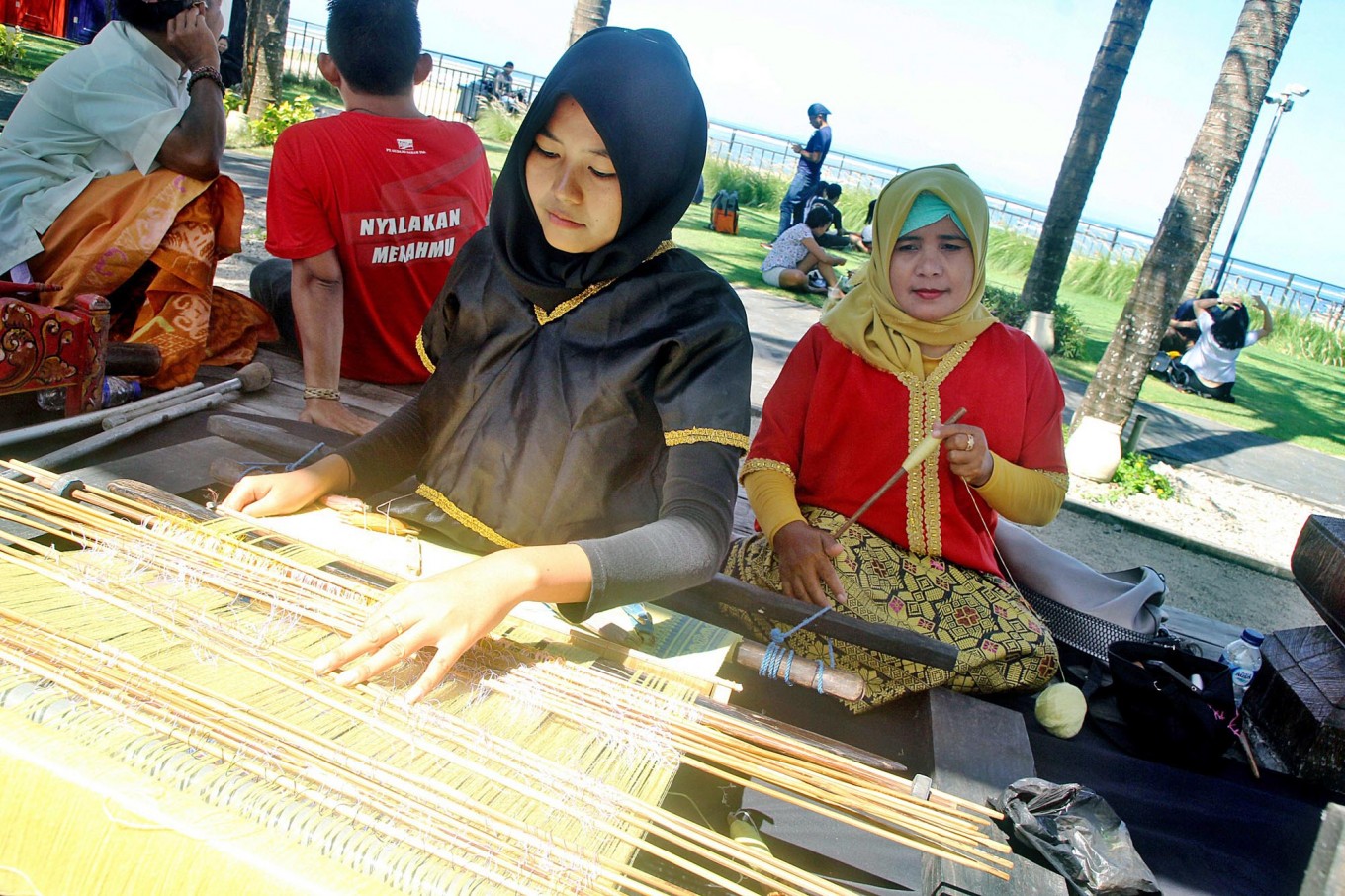Popular Reads
Top Results
Can't find what you're looking for?
View all search resultsPopular Reads
Top Results
Can't find what you're looking for?
View all search resultsWhere are the women in the digital age?
It is imperative that women also have equal access to the tools and capacities offered by advanced technology in order for us to achieve full development.
Change text size
Gift Premium Articles
to Anyone
H
ailing from Indonesia’s eastern region of Papua, entrepreneur Aksamina Woisiri is one the very few Indonesian women CEOs who established and runs her own start-ups in digital business. Despite not having much knowledge of IT, last year the Economics graduate set up Bajalan, an android-based mobile application which connects potential customers with hospitality operators in Papua, known for its marine and inland biodiversity.
The 27-year old Woisiri is one of UNDP’s beneficiaries in our entrepreneurship program, Youth Co: Lab, a joint initiative with CITI Foundation. In many ways Woisiri embodies the spirit of the International Day for Girls in Information and Communication Technology (ICT), which aims to galvanize a global movement to increase the number of girls and women in the ICT world. And as the world becomes increasingly digital, we must recognize a crucial area that has largely been unexplored - the role of girls and women in establishing digital information as the new driver to fast-track Sustainable Development Goals (SDGs) achievement.
In his message marking the International Day for Girls in ICT today, UN Secretary General Antonio Gutteres noted that there is a 17 percent gender gap in internet use globally. Indonesia features better compared to the global average. Latest figures from the Association of Internet Providers show internet penetration for women stands at 48 percent against men at 52 percent. Still, this five percent gender gap in access to technology carries serious repercussions because it marks the systemic gender inequality in the ICT world, with far reaching consequences in limiting women’s and girls’ opportunities to access education, land well- paid jobs, and start new businesses.
At a time when women’s hard-won gains have been reversed by the COVID-19 pandemic- due to restrictions on movement and access to essential services – we cannot afford further setbacks. Ironically, the COVID-19 pandemic has exposed more opportunities for information technology to help communities stay connected and businesses survive. Many businesses in Indonesia, particularly the micro, small and medium enterprises (MSMEs) – the backbone of the country’s economy – turn to online platform as a way to innovate amid social distancing restrictions. The relationship between gender and ICT is even more critical as UNDP works with Indonesia to achieve the SDGs.
As the government works on policies and programs to be more gender-inclusive, it is imperative that women also have equal access to the tools and capacities offered by advanced technology in order for us to achieve full development. Therefore, all development stakeholders must make these technologies inclusive, while working to build back stronger communities and economies from the COVID-19 pandemic.
The other underlying factor of the gender divide is the limited access to ICT education for girls at the school level. This can lead to a domino effect of sorts with fewer opportunities for access to the labor market, which increasingly demands digital skills and knowledge. Key to addressing this gap is to dispel common prejudices against girls pursuing science and ICT-related subjects.
Growing up in Georgia, I was discouraged to take a deep dive into mathematics. I was often told it was not a suitable profession for a woman, despite my natural aptitude and love for the subject. I can say that girls around the world may still have to navigate through certain stereotypes, which may stop them from pursuing their interest in this field.
Most jobs will soon require advanced technology skills and countries worldwide including Indonesia are in need of more digital talent. This is an opportunity for us to ensure no one is left behind. Educating more girls and women on digital literacy will equip them with the practical skills that could open up more opportunities for them to take jobs where these skills are in more demand.
Furthermore, with more jobs moving online and with technology playing a far more critical role in economic development, Indonesia as Southeast Asia’s largest economy is set to see a significant growth in the tech jobs sector. While it is heartening to see more women taking to online platforms to develop their entrepreneurial skills, it is another argument in favor of equipping girls in schools with the right tools needed to get them a head start in tackling the digital future.
And finally, there’s the question of online safety. Latest studies from UN Women reveal that many women in Asian countries face online violence, but they are too afraid to report the attacks to the authorities. The report goes on to say that people with limited digital skills – mostly girls and women – face greater risks of online harassment.
The situation could lead to more girls and women denying themselves learning opportunities through online platforms. It also calls for improved policies to better protect women and girls from online violence.
***
The writer is deputy resident UNDP Indonesia










